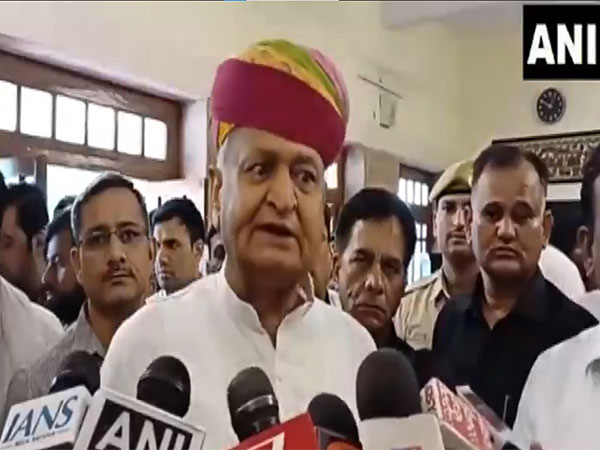
"Kissa Kursi Ka": Jaishankar takes dig at Congress over Emergency, says party placed one family above nation
Jun 27, 2025
New Delhi [India], June 27 : On 50 years of the imposition of the Emergency in India, External Affairs Minister S Jaishankar on Friday took aim at the Congress party, stating that one family's interests were placed above the nation. He also referenced the movie "Kissa Kursi Ka" to take a jibe at the Congress party.
"... All this happened because of one family... There's a movie titled 'Kissa Kursi Ka', and these three words aptly tell the reason behind the imposition of the Emergency. When a family is considered above the nation, things like Emergency take place," Jaishankar said.
The External Affairs Minister addressed the inaugural session of a mock parliament which was organised by Bharatiya Janata Yuva Morcha (BJYM)
Jaishankar recalled that during the Emergency, the opposition side of the parliament was empty as leaders were jailed. He stated that during that time he was a 20 year-old student at Jawaharlal Nehru University. He further said that the biggest lesson from the Emergency was to never take one's freedom for granted.
"We observed 50th anniversary of Emergency. We are here participating in mock parliament. During Emergency, opposition side of the parliament was empty. Leaders were jailed. This will never happen. I want to tell you what the biggest lesson is from the Emergency: Never take your freedom for granted. I was 20 years old when Emergency was imposed. I was in JNU. People think who are not aware about emergency, they think it was a political matter. But it impacted a way of life", Jaishankar said.
The External Affairs Minster said that the entire exercise of Emergency was to "break the morale of the country and the society". He stated that the people who were not even in politics were impacted, whereas those who were in politics were well aware that doing politics meant an inevitable arrest.
"This entire exercise, in a way, was to break the morale of the country and the society... Many people, who were not even in politics, were impacted. Those who were in politics were well aware that doing politics meant an inevitable arrest, and those who were arrested were unaware if and when they would be released", Jaishankar said.
The Union Minister also recalled the period of the 1971 elections when the popularity of the government dropped drastically, corruption in the country had increased and the inflation was high. He further stated that the Prime Minister was charged in two cases following the intervention of the Allahabad High Court.
"After winning the elections in 1971, within a few years, the popularity of the government had drastically dropped. Corruption had increased, inflation was very high, and the tide was not in their favour. People were angry. Agitations were going on in Gujarat and Bihar... People were raising questions on the business of the then 'yuvraj'. Based on the verdict of the Allahabad High Court, the then Prime Minister was charged with two cases- corrupt practices and misuse of government machinery", Jaishankar said.
The EAM said that a total of 48 ordinances were passed during the Emergency period followed by five amendments. He mentioned that three amendments out of the five were very particular.
He noted that the 38th amendment was regarding the declaration of the Emergency, meanwhile, the 39th amendment was on challenging the election of the Prime Minister in court.
The 42nd Amendment focused on the dilution of fundamental rights and how the power of courts was curtailed.
"During the Emergency, 48 ordinances were passed. Just imagine - in two years, 48 ordinances and five amendments. Among these, three amendments were particularly significant. One was the 38th Amendment, which stated that you cannot challenge the declaration of Emergency in court. The 39th Amendment said that the Prime Minister's election could not be challenged in court and the 42nd Amendment allowed the dilution of Fundamental Rights and curtailed the powers of the courts", he said.
The Emergency was imposed between June 25, 1975, and March 21, 1977.






















